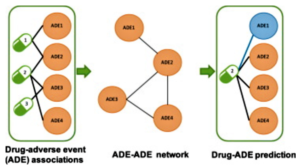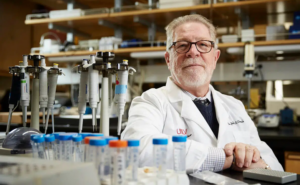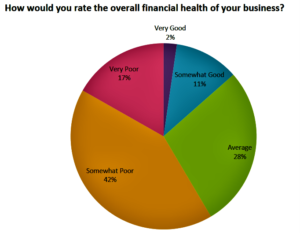- Video killed the in-person meeting star? Study finds video calls more effective in driving Rx (fiercepharma.com)
Should pharma reps keep wheeling their cases into doctors' offices? Maybe not. Video meetings are three times more effective than in-person interactions when it comes to driving new prescriptions...That’s according to a new report...which combed through data from 130 million quarterly field interactions across 80% of global biopharmas...It was an unexpected result: Video meetings, which have grown during the pandemic, work better than in-person meetings at getting new prescriptions filled. And digital leaders in the industry “are gaining an advantage using video calls up to three times a week,” the...report said...Why is video better? Partly because video meetings last longer...video calls tend to average 21 minutes, with reps using content in 85% of those meetings compared with 39% in person...READ MORE
- ICER, vocal critic of drug company pricing, turns scrutiny to insurers (biopharmadive.com)
The Institute for Clinical and Economic Review, a nonprofit and frequent critic of drugmakers for excessively high drug prices, now plans to assess how health insurance policies harm patient access to care...This follows research by the group that argued cost-sharing should not be structured to shift healthcare costs to patients when they have no medically appropriate lower-cost option...ICER's review will not, however, look at whether cost-sharing should be reduced for drugs on which payers receive large rebates or whether payers should be asked to demonstrate how their policies on drug access save overall healthcare costs...READ MORE
- New Machine Learning Tool Can Predict Adverse Drug Effects (drugtopics.com)Development of an adverse drug event network to predict drug toxicity (sciencedirect.com)
A new computer algorithm might be the next step toward accurate prediction of adverse drug reactions..Researchers from Harvard Medical School and the Novartis Institutes for BioMedical Research announced the creation of an open-source machine learning tool capable of predicting drug adverse effects (Aes)...The study, published in The Lancet journal EBioMedicine, examined 2 databases: 1 that reported adverse drug reactions and another with 184 proteins that specific drugs are known to interact with. Investigators constructed a computer algorithm to develop associations between the drug reactions and the 184 individual proteins...The algorithm discovered 221 associations, some known and some new. These associations indicated which proteins contribute to certain AEs and which may not...The new algorithm could help predict these AEs before the drug goes to human clinical trials, as well as before and after it enters the market...READ MORE
- Amid a political firestorm over pharma’s pricing, net prices actually fell last quarter: report (fiercepharma.com)
Politicians and headlines regularly describe U.S. drug prices as “skyrocketing." But new data from analysts at SSR Health show prices haven't been growing as fast as they were—and the amount payers actually shell out is falling...In the second quarter, list prices in the U.S. grew 3.1%, compared with a 4.6% increase during the same period last year. After rebates, prices fell 5.8% during the second quarter, compared with a 6.1% drop after rebates during last year’s second quarter...The net pricing changes typically reflect a mix of increases and decreases across the industry—among various products, companies and market segments—but this time around, “literally no products, companies, or market segments" displayed big net price increases...READ MORE
- Roll, flip, spin: Stanford develops amphibious millirobot for fantastic voyage (fiercepharma.com)Stanford engineers develop tiny robots to bring health care closer to precisely targeted drug delivery (news.stanford.edu)
A Stanford University team has created the amphibious all-terrain vehicle of the drug delivery world. The researchers designed the millimeter-scale robot to roll, flip and spin past obstacles and through liquids to navigate complex biomedical environments...Multiple papers have described the creation of wirelessly operated millimeter-scale origami robots that can move through narrow spaces and change shape to complete specific tasks. Potential applications for the robots include targeted drug delivery, in which context the vehicles would carry a payload for release at a specific site...Operated magnetically, the millirobot is designed to adapt itself to the environment, autonomously switching between rolling and flipping to get over some obstacles. Applying a magnetic field causes the millirobot to jump over bigger barriers...READ MORE
- Needles in haystacks: a new generation of AI-enhanced drug discovery companies (pharmaceutical-technology.com)
The search for novel therapies has long been a trial-and-error process that costs drug companies a vast amount of time and money. Now, with artificial intelligence (AI) set to transform the pharmaceutical industry more than any other emerging technology, a growing number of pharma and biotech groups are harnessing the cutting-edge tech to minimise the hit-and-miss nature of R&D and discover new therapies with previously impossible speed and accuracy...READ MORE
- Show me the data: U.S. doctors skeptical of reported COVID breakthrough (reuters.com)
The report on...a powerful treatment for the new coronavirus brought skepticism along with optimism among U.S. doctors, who said the recent withdrawal of an influential COVID-19 study left them wanting to see more data...Global pressure to find a cure or vaccine has accelerated the process of reporting coronavirus study results, feeding confusion over whether therapies have been proven effective. One influential COVID study was withdrawn this month by respected British medical journal The Lancet over data concerns...Researchers in Britain said dexamethasone, used to fight inflammation in other diseases, reduced death rates of the most severely ill COVID-19 patients by around a third, and they would work to publish full details as soon as possible...But hours later South Korea’s top health official cautioned about the use of the drug for COVID-19 patients due to potential side effects...READ MORE
- Saliva in space? UNLV samples will be launched on a SpaceX rocket (reviewjournal.com)
Saliva and oral bacteria from 30 UNLV dental clinic patients will blast off...in a rocket bound for the International Space Station...UNLV researchers from the Howard R. Hughes College of Engineering and School of Dental Medicine are partnering with NASA and Colgate-Palmolive to study the growth of oral bacteria in space and to see if Colgate’s oral care products are effective in a microgravity environment...Two of the UNLV researchers involved with the project Jeffrey Ebersole, associate dean for research at the School of Dental Medicine, and mechanical engineering research scientist Shengjie Zhai will be on site...for the rocket launch...READ MORE
- First antimicrobial drugs purchased via new ‘subscription’ payment model (pharmaceutical-journal.com)
The new model will pay pharmaceutical companies upfront for access to medicines based on their usefulness to the NHS...The...model aims to stimulate investment in the development of new antimicrobials...led by the National Institute for Health and Care Excellence, NHS England and NHS Improvement, will pay pharmaceutical companies upfront for access to medicines based on their usefulness to the NHS...two treatments, cefiderocol (Fetcroja) manufactured by Shionogi, and ceftazidime with avibactam (Zavicefta) manufactured by Pfizer, have become the first two drugs to be selected to move to an innovative health technology evaluation process as part of the payment system...READ MORE
- Study: Local pharmacies pushed to brink by pharmacy benefit “monopolies” (chaindrugreview.com)NCPA SURVEY: Health of Independent Pharmacy (ncpa.co)
A substantial majority of independent pharmacies say they may close their doors in the next two years, and the main culprits are multi-billion-dollar corporate middlemen who are shaking them down for fees on medicines long after the point of sale, according to a new survey by the National Community Pharmacists Association...“Neighborhood pharmacies are being mugged in broad daylight and no one in Washington is doing anything about it,” said NCPA CEO B. Douglas Hoey. “If Congress or the administration don’t act soon, we’re going to see a wave of layoffs and store closures that will leave many patients stranded without access to a local pharmacist.”...READ MORE










